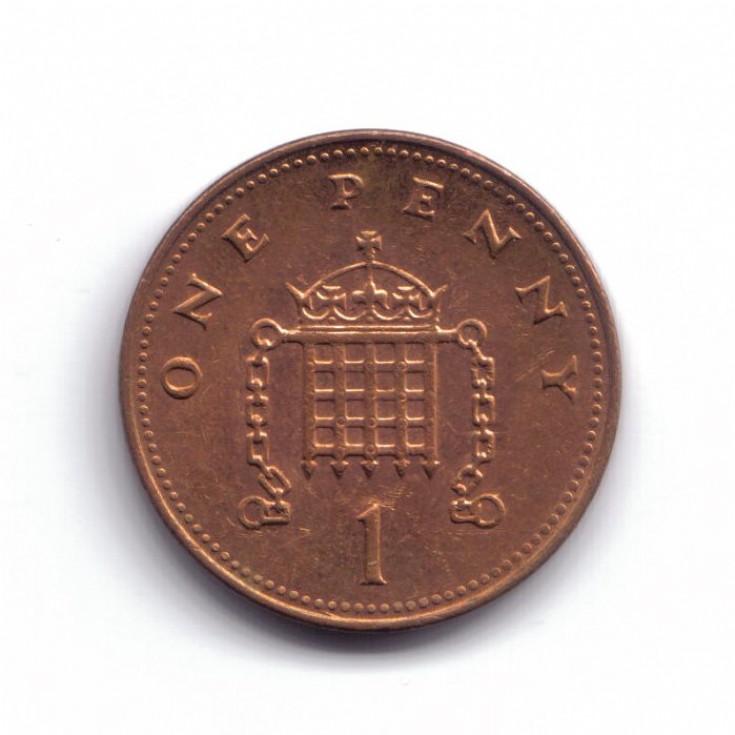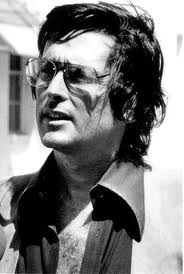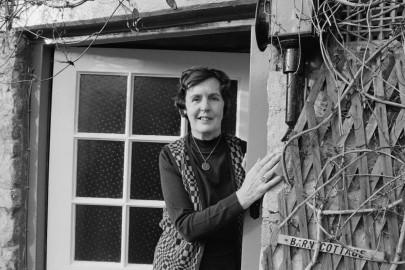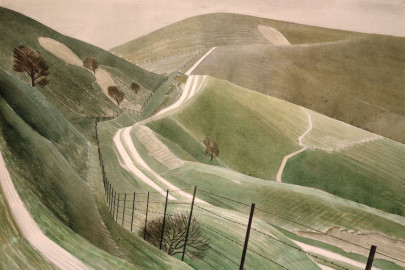Yes, it’s a highly entertaining trove of show-business anecdotes. Yes, it’s a great tale of a boy made good (and bad), the son of America’s first racially-integrated dentist – lauded in Harlem but nowhere else – who achieved Hollywood fame with all its trappings. Yes, it’s the inside (and disputed) story of how a number of movie masterpieces got made, retailed in engaging, almost Chandleresque style. But what I find most notable about Robert Evans’ memoir The Kid Stays in the Picture (available here for the smallest piece of small change, plus postage) is that it’s the best book on the deal – sorry, The Deal – I’ve ever read.
Evans was successively rag-trade entrepreneur, actor, producer and studio head; the man who brought films such as Rosemary’s Baby, Love Story, The Godfather, Chinatown and The Cotton Club to the screen. But what runs most strongly through the book is his love for making a deal (OK, that and his love for the more expensively louche things in life: beautiful actresses, some of whom he married, champagne, cocaine, gambling).
A Hollywood studio is nothing more than a string of projects and each of these is a one-off: beautiful monsters patched up using sometimes disparate parts and encouraged to shamble off in the right direction, each one unique in its peculiar anatomy and in the location of its erogenous zones – and the erotic reference is apposite as Evans’ movie conquests are described with as much passion as his romantic ones. He was by no means motivated merely by money (his carelessness with a fortune or two testifies to that). Rather, he seems to have got his kicks from the act of creation, from putting often recalcitrant and unlikely materials together in order to make great films. And he was supremely good at it.
It helped that he brought to bear formidable reserves of good looks, charm, cunning, bullshit, enthusiasm and determination. He needed all of them.
The Mecca for deal-makers during much of twentieth-century America (and therefore the world) was Hollywood. It attracted the toughest negotiators, the biggest egos, the sharpest operators as well as, of course, battalions of the treacherously charming and the seductively beautiful. To adapt one of its multi-talented conquerors, if you could make it there, you could make it anywhere. In fact, has anywhere else on earth ever contained so much ambition, wilfulness and cupidity?
The Kid Stays in the Picture is the only book I’ve come across that relates the dynamics of Olympic-standard deal-making, intimately and in all its manifold aspects (even though one suspects the facts have been embellished somewhat for the sake of a good story, not to mention the glory of the author). There must be hundreds, if not thousands, of business books on negotiation but read this one and you will probably feel you haven’t got much to learn from them. Not so much because Evans’s book is something of a how-to manual; it’s more that one is left doubting that it’s possible to learn from scratch what Evans does, certainly at these rarefied levels. For instance, parse how he came to buy the rights to Mario Puzo’s The Godfather – before the novel had been written, or even been finally named:
It was an afternoon in the spring of 1968.
“Mr. Mario Puzo is here to see you.”
Seeing him was strictly courtesy time. A favour to George Wieser:
“He’s a helluva writer, hungry, and writes your kind of shit, Evans.”As Puzo walked into my office two things stood out – a twelve-inch cigar and a stomach to match. Schmoozing about our mutual addiction (neither drugs nor girls, but gambling) created an immediate camaraderie.
Poor Mario, he had no wins to reminisce about. Without realizing it, he told me a story that was the key to his head. Only a brother gambler could have understood it.
“Been betting football twenty years, batting on for twenty. I followed the point spread that year till game time. There’s always a couple of shoo-ins – no-brainers. I bet the other way. That’s the fuckin’ year I won.”
“That’s gamblin’, pal….” Nothing more to be said – we knew each other.
Mario belonged to a big club: Walter Matthau, Dickie Van Patten, and many more. All gamblers, all enjoying the same perverse sickness of losing. Do I understand it? No! But I also don’t understand people enjoying pain.
From a rumpled manila envelope, he took out fifty or sixty even more rumpled pages.
“Thinkin’ of writin’ an inside story on the boys, The Organization – part real, part fiction. Callin’ it Mafia. Name’s never been used.” He laughed. “Kefauver Committee branded it. You got yourself a real original. Could be good.”
I eyed him. “In trouble?”
“Yeah, about ten Gs. They’ve been waitin’ too long for it.”
“You’re covered pal. I’ve just optioned Mafia for twelve five.”
Mario’s pudgy face broke out in a broad smile.
“Can we break out your Monte Cristos – celebrate?”
“Celebrate?…Survive! If you don’t get that fuckin’ fire hose out of your mouth, I’m gonna pass out.”
Quickly palming a Monte Cristo from the humidor, he slowly smelled its aroma with the pleasure of a wine steward savoring the fragrance of a just opened bottle of 1932 Château Lafitte [sic].
“Where do you get ’em from?”
“Vault town.”
A Puzo double take.
“Zurich.”
Forget the chair I held, the Monte was the key to his respect for me. Circumcising the tops with a wooden match, we lit up our heavenly smoke. He, the hustler – me, the shylock.
The rest is history – but only once a number of other improbable and involved deals were closed to bring this one film, perhaps the greatest, to the screen.













Its a really great book, definately one of my favourite hollywood reads, and an absolute steal at 1p. Regardless of whether you’re interested in Hollywood gossip, as you say, it’s all about the interest in reading about a stratospherically sized ego….and if you read other hollywood exposes from the same period you realise that most of Evan’s book is just self-mythologising. Other commentators who were there recall him as an unpleasantly seedy cocaine and prostitute addict. Naturally none of which is mentioned in his book
Endlessly fascinating Gaw, images of blue chinned Italianate blokes with extra menace, ever the shadow of the horse’s head on the pillow, the office scenes often more jaw dropping than the celluloid end product. Lid blowing books always worth the nickels and dimes even though most are 30% fantasy, except Me Cheetah of course.
From recent news reports it sounds as though the NHS purchasing departments would benefit from some Hollywood style techniques.
Worm: Given he was involved with so many good films isn’t it fair to say he had something about him? I suppose being an ‘unpleasantly seedy cocaine and prostitute addict’ may not be a bar to effectiveness as a Hollywood producer (cf. Don Simpson, whose bio I know we’ve both read!).
Malty: Funny how the making of some movies is just as interesting as the movie itself, and in some ways plays out its themes just as effectively. The best example of this is the documentary Hearts of Darkness about the making of Apocalypse Now, which is in a way a better exploration of Conrad’s novel than the film. Apart from it probably being too far fetched to be fiction.
Gaw I don’t deny his effectiveness for a moment! Its just I normally tend to like a person more when I read their autobiography if, amongst the mythologizing, they show some self-awareness and acknowledgement of some of their failings (without going overboard). Evans just seems like an impenetrable blank wall of bluster
Recent photos of him (enter ‘Robert Evans images’ in Google) are enough to put you off: he looks bizarrely horrible. Too much surgery and tanning.
ps Gaw re. films on the making of films being more interesting, canI also recommend ‘Burden of Dreams’ about Werner Herzog’s nightmare trying to make Fitzcarraldo, it’s just as good a watch as Hearts of Darkness
Thanks for reminding me – I saw it at uni and had forgotten all about it. I recall Klaus Kinski being just terrifying.
Do people really talk like that? How do they have the presence of mind?
Brit, if Bob Evans and Mario Puzo read a transcription of you in full flow they might ask the same…
Top choice Gaw, I loved this book too. I’m sure they guy who wrote Me Cheeta must have read it too. Have you read Joe Esterhaz’s Hollywood Animal? Another towering monument to self-regard from a glorious sleazeball.
Jon, I had a look at Evans’ Wiki entry before posting and picked up Esterhaz’s description of him as ‘the devil’, also saying that “all lies ever told anywhere about Robert Evans are true.” I looked up the reviews of Esterhaz’s memoir and some said it was rubbish and others that it was brilliant. I bought it anyway (second-hand for 1p, natch) and it’s on its way – but thanks for the reassurance!
By the way, do you think Evans was the sole author of TKSITP? It seemed to me an engaging and quite stylish piece of writing – the author of Me Cheeta didn’t have to do a lot of adaptation…
You’ll get full value for your 1p, don’t worry! Especially when he and Paul Voerhoven become so power-crazed that they’re left alone to make Showgirls,,, superb.
Don’t think that Bob would have put the krell and girls aside for long enough to write a book, do you? Dictated it at best, I’d say. The guy who wrote Me Cheeta can really write though. I recommend it [at full price] if you’ve not read it. Am just about to re-read it myself, and am looking forward to it. You might have got me going on another Hollywood memoir binge here…
I blogged on it:
http://gawragbag.blogspot.com/2009/07/chimp-lit.html
You might have got me going on another chimp lit binge…
Worm/Gaw – yes, Burden of Dreams is always worth an outing, but can I also put forward Herzog’s diary, kept during the making of Fitzcarraldo, ‘Conquest of the Useless’. As well as all his other talents, he writes very well in English, and the book goes some way to explaining the lunatic behaviour of Kinski, and how he (Herzog) learned to deal with his tantrums.
agreed Mahlerman – I also really liked ‘Herzog on Herzog‘ – a collection of interviews in which he lets slip plenty of juicy gossip about his films
If ye can get yer hands on the US edition of Hollywood Animal it has bits that were excised from the UK edition for libel reasons. Or something like that. Stuff about the time he shagged Sharon Stone, the details are not flattering.
Thanks for the tip, Vern. My Esterhaz book’s arrived and I’ve realised I ordered the wrong one (The Devil’s Guide to Hollywood). I’ll now try to buy the US version of Hollywood Animal. (Darn it, that’s probably another 1p blown (plus p&p).)
UPDATE: The US Knopf hardback edition is plentiful second-hand in the UK and was indeed acquired for 1p.
I also really enjoyed the Devil’s Guide- read that first and it’s very funny, but never quite made it to the end of Animal, as the latter pages when he talks about life post Showgirls taper off somewhat…